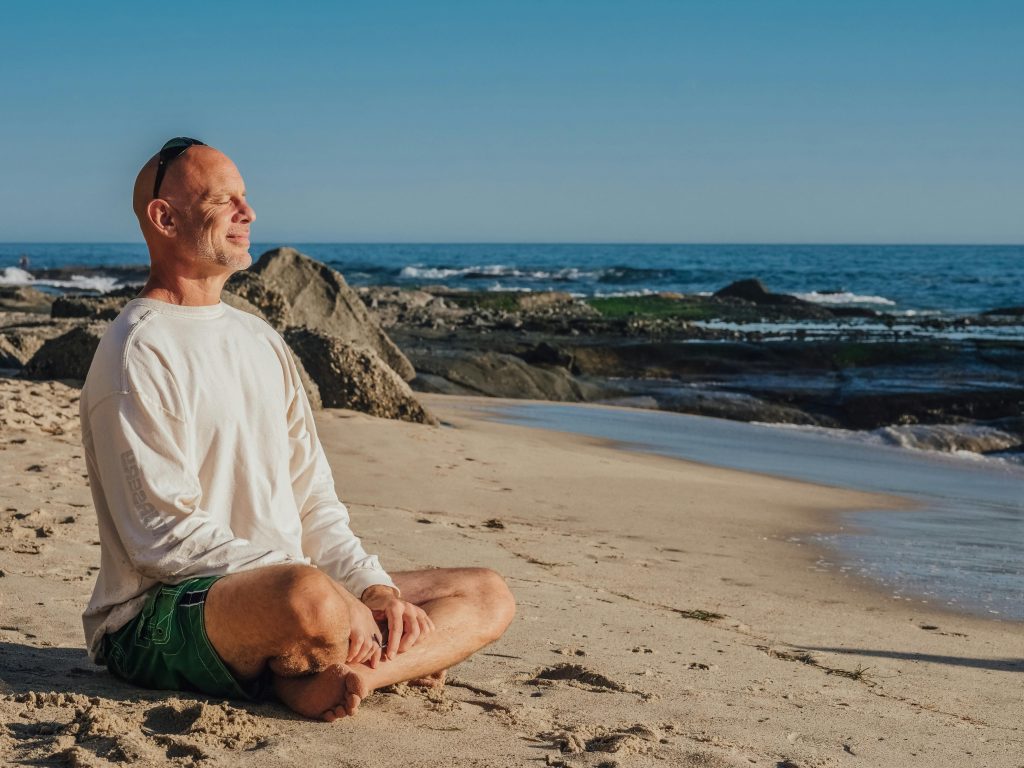Unfortunately, self-medication is a common practice for many people living with an anxiety disorder. For some, it is the result of undiagnosed or untreated anxiety while others may simply be seeking a stronger way to handle their symptoms. Self-medication often leads to dependence as well as worsened anxiety symptoms, and should never be considered a healthy option for coping with anxiety.
Of course, professional treatment is the best option, and you should seek help immediately if your symptoms start to interfere with your ability to function or if you have thoughts about harming yourself. If this is not the case, there are ways you can work to manage your symptoms on your own. Here are a few alternatives to self-medication if you suffer from anxiety.
Take Up Daily Meditation
Meditation has been shown in numerous studies to be highly beneficial for many people. It can be used for everything from reducing workplace stress to coping with symptoms of mental illness. For anxiety, meditation is a great technique for managing racing thoughts, stress, and worry.
Learning how to meditate effectively does take time and is most effective when it is worked into your daily routine. After just a few days to meditating, you may be surprised at how much better you feel.
Start an Exercise Regimen
Another great strategy, exercise is one of the best ways to help a range of conditions including anxiety. Exercise produces endorphins that can promote positive emotions. After exercising, people generally feel uplifted and more positive which is a huge benefit for someone with anxiety.
You can create a regimen that you can really enjoy, rather than the standard day at the gym if that’s not your thing. Consider taking classes on yoga, tai chi, dancing, or any other enjoyable way to get moving. You don’t want to stress yourself out further by dreading your exercise.
Modify Your Eating Habits
Many people don’t realize just how much your diet can affect how you feel. When you are suffering from a significant nutritional gap, it is possible to have emotional symptoms as well as physical. These can include greater depression and anxiety.
So, to mitigate your symptoms, you may want to work with a nutritionist to identify your deficiencies and work out the best ways to fill them. If your diet or allergies won’t allow you to correct your deficiencies with food alone, talk to your doctor about adding a nutritional supplement as an alternative.
Find a Hobby
Hobbies have a greater positive impact on your mental well-being than you might think. For many people, the onset of anxiety or depression can lead them to reach for drugs or alcohol; however, hobbies allow you to train yourself to reach for an enjoyable activity instead.
Sitting down and engaging your mind in a craft, game, or other hobby can be a wonderful way to combat the symptoms of anxiety without feeding a substance use problem. It’s even better if your hobby is portable and can be carried around to help manage anxiety in public. A few options are cross stitching, knitting, crocheting, doodling, or reading.
Manage your symptoms is a learning process. Alcohol or drug misuse can seem like a quick and easy way to stop your symptoms in their tracks, but in reality you are doing more damage in the long run. Seek out proper treatment, whether that means counseling, medication, or both. And in the meantime, try out a few of these healthy coping tactics. You may be surprised byhow much better you feel.
The content provided herein is intended for informational purposes only and should not be considered a substitute for professional advice or treatment. If you or someone you know is struggling with mental health-related concerns, seek guidance from a qualified behavioral health professional. Click here to get help now. Any links are provided as a resource and no assurance is given as to the accuracy of information on linked pages.


2 Comments
I have found that exercise, in particular running and strength training, to help A LOT. I looked into studies about it and both have helped me to not only control my anxiety but pull me out of depression in just a few weeks. I have been off my medication for 6 months now and feel so much better.
Something that has helped me a lot with my anxiety was using magnesium lotion. I can’t tolerate the supplements but the lotion is okay for me so long as I don’t over do it. It goes right into the bloodstream too. I started using it every night on the bottom of my feet before bed. It helps me sleep and helps me better manage stress. I also started exercising again. I had gained weight since Covid and became very inactive and that has made my anxiety worse.